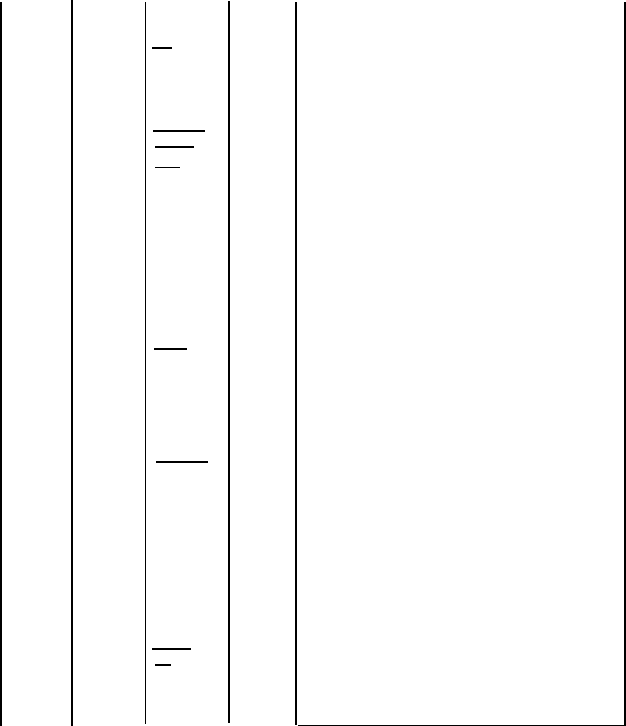
Table F-1. Pins and signals (continued)
Signal Return
Direc-
Pin
Pin
Signal
tion
12
30
PE
OUT
13
—
SLCT
OUT
14
—
AUTO
IN
FEED
XT
Description
A HIGH signal indicates that the printer
IS
out of paper.
15
—
—
—
16
—
GND
—
17
—
CHASSIS
—
GND
18
—
NC
—
19-30
—
GND
—
31
16
INIT
IN
36
—
SLCT-
IN
IN
Notes:
1.
2.
32
— ERROR OUT
33
—
GND
—
34 —
—
—
35
—
—
OUT
Pulled up to + 5 volts through 3.3k ohm
resistance.
When this signal is LOW, the paper is
automatically fed 1 line after printing.
(The signal level can be fixed to this by
setting DIP switch 2-8 to ON.)
Unused.
Ground for twisted-pair grounding.
Printer’s chassis ground, which is
isolated from the logic ground.
Unused
Grounds for twisted-pair grounding.
When this level becomes LOW, the
printer controller is reset to its power-up
state and the print buffer is cleared. This
level is usually HIGH, its pulse width
must be more than 50 microseconds at
the receiving terminal.
This level becomes LOW when the
printer is in:
1) Paper-end state.
2) Off-Line.
3) Error state.
Same as for Pins 19-30.
Unused.
Pulled up to + 5V through 3.3k ohm
resistance.
The DC1/DC3 code is valid only when
this signal is HIGH. (Internal fixing can
be carried out with DIP switch 2-7. The
level of this signal is factory-set to LOW.)
The column heading Direction refers to the direction of signal flow
as viewed from the printer.
Return denotes the twisted-pair return, to be connected at signal
ground level. For the interface wiring, be sure to use a twisted-pair
cable for each signal and to complete the connection on the return
side. To prevent noise, these cables should be shielded and con-
nected to the chassis of the host computer or the printer but not at
both ends.
F-2


















